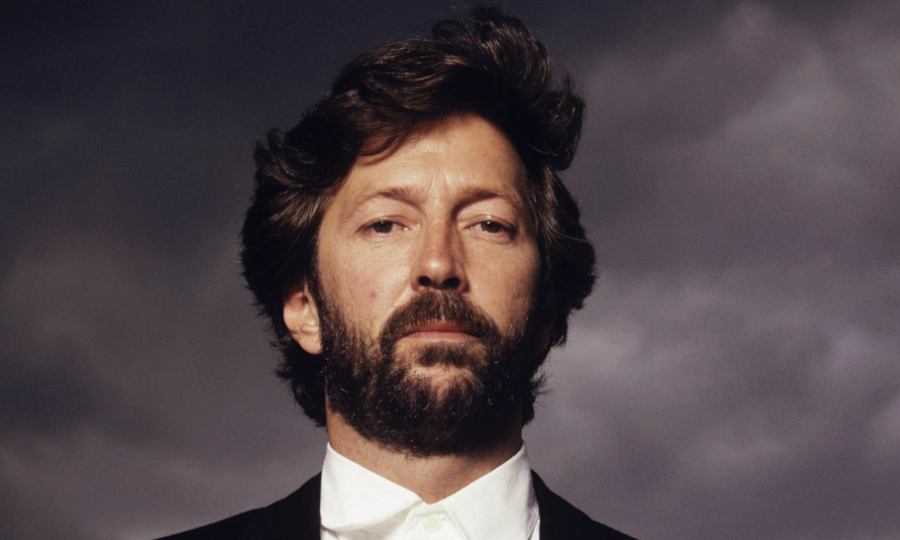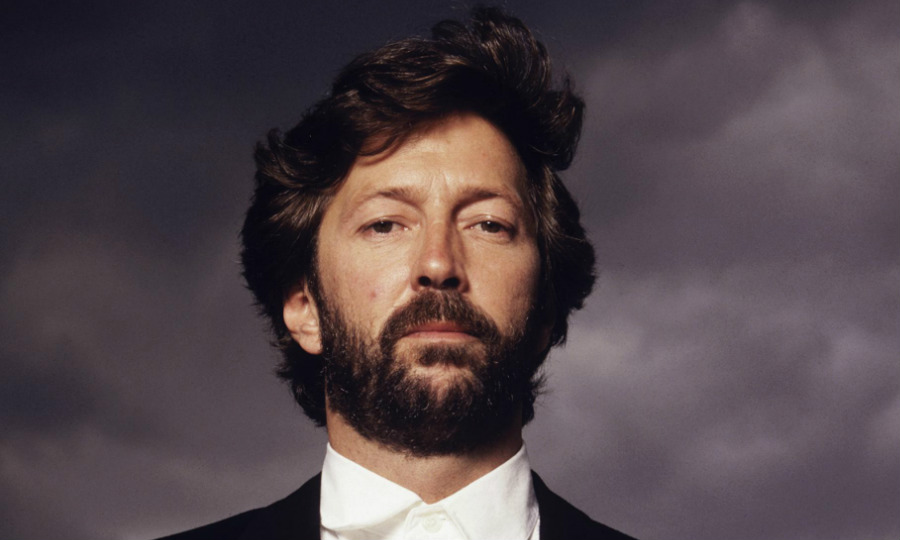J. J. Cale and Eric Clapton both imprinted the history of blues in remarkably different ways, culminating in the creation of a classic: Cocaine.
Eric Clapton has arguably lived two lives. From the groundbreaking blues-rock innovation and extended guitar solos of his early work to the pop perfection of his elder days, Clapton has won 17 Grammys and remains the Rock n’ Roll Hall Of Fame’s first and only ‘triple inductee’.
Nonetheless, a major philosophical beacon for Clapton and the conduit to his metamorphosis is the prophet of Tulsa Blues, J. J. Cale.

While most people attribute the catchy Cocaine to Eric Clapton and his free-wheeling ways it was indeed the criminally underrated blues mastermind J. J. Cale who penned the tune. He also wrote another one of Clapton’s biggest hits, After Midnight.
Today we take notes on the transitional genius from one blues player to another and the thriving friendship of Eric Clapton and J. J. Cale.
Planting the seeds
Eric Clapton was blighted in the early ’70s by the increasingly harrowing effects of fame and drugs. Following the mighty success of Britain’s first supergroup Cream, Clapton was God.
When Cream broke up in 1968, Clapton divulged his increasing dissolution to heroin. What didn’t help is he started Blind Faith with Cream junkie Ginger Baker. Unfortunately, Blind Faith burned hot and bright before fading in 1969, the year of its birth.
When Clapton formed Derek and the Dominos in the spring of 1970 he was deeply in love with George Harrison’s wife Patti Boyd and thus was living under a series of masks. Clapton as Derek, and Patti as Layla.
Clapton was becoming increasingly tired with the whole guitar hero thing and his gymnastic playing was getting out of control. In fact, in a somewhat obscure profession of love, Clapton once turned up to Harrison’s house and proposed a guitar battle. The winner would take home Patti Boyd. Somewhat sexist and contrite, Clapton won the battle but Patti decided to stay with Harrison.
In the early ’70s, Clapton was introduced to J. J. Cale. The impermeable character and humble nature of Cale’s songwriting deeply effected Eric and inspired a more concise and lyrically focused form of songwriting.
Cocaine
Clapton was turned onto J. J. Cale in the early ’70s and he reflects on it as a lightbulb moment.
“I went into that dark period in my life and was just absent, and about that time some of JJ’s early stuff was coming out. I definitely was trying to shake off this guitar legend thing, which I thought was so plebeian. It was such a pedestrian way of looking at things. I didn’t want anything to do with that. I didn’t want anything to do with this heavy metal shit that was going on. I can’t stand the noise. I wanted to kind of see the virtuosity, I wanted to get back to fundamentals, and he was a fundamentalist for sure. And so he was my beacon.”
Funnily enough, Clapton covered J. J. Cale’s Almost Midnight as his first solo single in 1970. As a result, Cale scored a major record deal and recorded his debut album Naturally in ’72. Widely regarded as a timeless classic, Cale’s playing puts emphasis on relaxed grooves, breathy vocals and minimalist finesse.
In 1974, Lynyrd Skynyrd would cover Call Me The Breeze creating another instant hit. Yet it wasn’t until 1976, on J. J. Cale’s, fourth studio album Troubadour, that the genius of Cocaine was born.
J. J. Cale describes writing the song in the 2004 documentary To Tulsa and Back:
“I wrote ‘Cocaine’, and I’m a big fan of Mose Allison…So I had written the song in a Mose Allison bag, kind of cocktail jazz kind of swing…And Audie said, ‘That’s really a good song, John, but you oughta make that a little more rock and roll, a little more commercial.’ I said, ‘Great, man.’ So I went back and recut it again as the thing you heard.”
The following year, 1977, Eric Clapton would cover it on his Slowhand album and it quickly became one of his biggest hits. During the Slowhand sessions, Clapton and his band went to see a J.J. Cale concert, and Cale brought Clapton on stage to perform a duet of Cocaine.
Much like the subtlety behind Lou Reed’s 1972 classic Walk on the Wild Side, Clapton was inspired by the deceptively sophisticated lyrics:
“It’s no good to write a deliberate anti-drug song and hope that it will catch. Because the general thing is that people will be upset by that. It would disturb them to have someone else shoving something down their throat,” explains Clapton. “So the best thing to do is offer something that seems ambiguous—that on study or on reflection actually can be seen to be “anti”—which the song “Cocaine” is actually an anti-cocaine song. If you study it or look at it with a little bit of thought … from a distance … or as it goes by … it just sounds like a song about cocaine. But actually, it is quite cleverly anti-cocaine.”
All in all, J. J. Cale embodied the ideal characteristics of somebody devoted to their music and not seduced by the temptations of fame.
“He was a beacon in a philosophical sense, because I needed to know that there was someone else out there that didn’t want all those trappings,” Clapton later concludes.
Cale and Clapton would go on to record a collaborative album in 2006 entitled The Road to Escondido, which won J. J. Cale his first and only Grammy in 2008 for Best Contemporary Blues Album.
J. J. Cale sadly passed away in 2013 at age 74 from a heart attack. On the plane to the funeral Clapton began feverishly penning the song list for a tribute album on a napkin. The Breeze: An Appreciation of JJ Cale remains a beacon of the unbridled friendship between two of blues greatest luminaries and the song that started it all.
While we’ve got you, check out:
- All Along The Watchtower: From Dylan to Hendrix
- Hurt: From Reznor to Cash
- Mad World: from Tears for Fears to Gary Jules
- Blue Suede Shoes: from Perkins to Presley
- Knockin’ On Heaven’s Door: From Dylan to Guns N’ Roses



